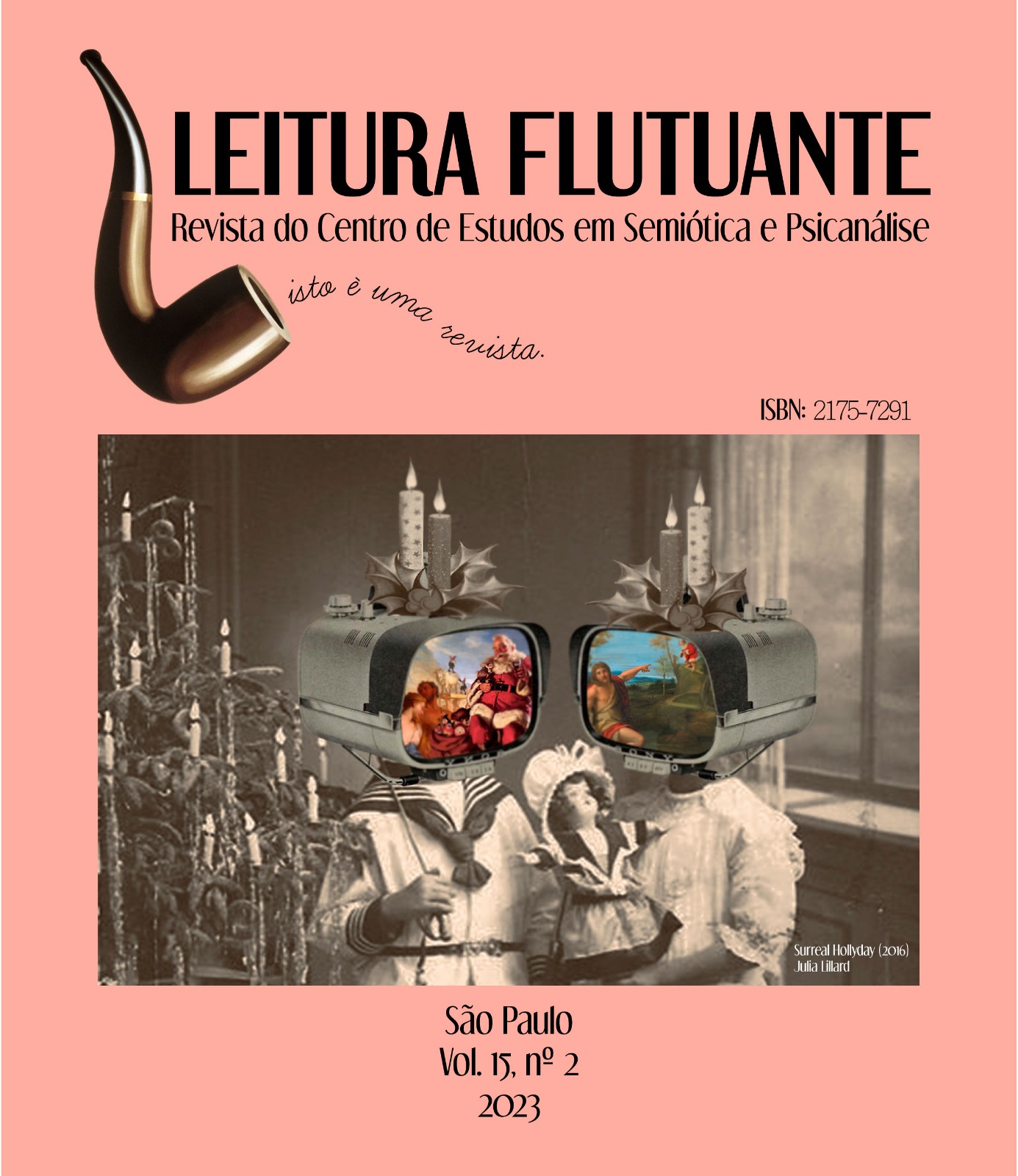Happiness, consumerism and malaise in civilization
a film analysis of the short film Happiness
DOI:
https://doi.org/10.23925/lf.v15i2.65148Keywords:
Consumerism, Civilization and its Discontents, Happiness, Film AnalysisAbstract
The present study aims to analyze, from the psychoanalytic perspective, how the short film Happiness, by Steve Cutts, helps to understand which are the signs of the civilization and its discontents, present in a consumer society that seeks happiness that apparently is everywhere, but no one can achieve. The theme happiness is addressed by Freud in the text Civilization and its Discontents, of 1930, in which he points out that men wish to achieve and remain in a state of happiness, however, for each person, the way to find happiness is very particular, and might have several paths, but none guarantees total security. For him, constant and absolute happiness does not exist, it happens intermittently. The culture of consumption enhances the idea that through the satisfaction of individual desires it will be possible to find happiness and thus sharpens in consumers new desires to be satisfied, making them want to consume more and more. However, the existential emptiness inherent to the human being and his relationships is not easily filled with objects, pleasure or medication. All these questions raised by Freud can be analyzed through the short film Happiness, which also denounces the excesses of modern society, the robotization of everyday life and the strategies of individuals to deal with the anxieties of real life, helping in the reflection of consumerism and the search for happiness.
References
BAUMAN, Z. Vida para consumo: A transformação das pessoas em mercadoria. Rio de Janeiro: Zahar, 2009.
BAUMAN, Z. Modernidade líquida. Rio de Janeiro: Zahar, 2001.
BAUMAN, Z. A riqueza de poucos beneficia todos nós? 1. ed. Rio de Janeiro: Zahar, 2015.
FREUD, S. Reflexões para os tempos de guerra e morte. In: Edição standard brasileira das obras psicológicas completas de Sigmund Freud, v. XIV. Rio de Janeiro: Editora Imago, 1974a.
(Trabalho original publicado em 1915).
FREUD, S. Além do Princípio de Prazer. In: Edição standard brasileira das obras psicológicas completas de Sigmund Freud, v. XVIII. Rio de Janeiro: Editora Imago, 2006c.
(Trabalho original publicado em 1920).
FREUD, S. O mal-estar na civilização. In: Edição standard brasileira das obras psicológicas completas de Sigmund Freud, v. XXI. Rio de Janeiro: Editora Imago, 2006d.
(Trabalho original publicado em 1930).
GARCIA-ROZA, L. A. Freud e o inconsciente. 24. ed. Rio de Janeiro: Jorge Zahar, 2009.
HAPPINESS. Direção: Steve Cutts. [S. l.: s. n.], 2017. Disponível em: https://www.stevecutts.com/animation.html. Acesso em: 27 ago. 2021.
MARCONI, M. A.; LAKATOS, E. M. Fundamentos de metodologia científica. São Paulo: Atlas, 2006.
MOMBELLI, N.F.; TOMAIM, C. S. Análise fílmica de documentários: apontamentos metodológicos. Lumina, Juiz de Fora, v. 8, n. 2, p. 1-17, dez. 2014. Disponível em:<https://lumina.ufjf.emnuvens.com.br/lumina/article/view/323>. Acesso em: 28 ago. 2021.
PENAFRIA, M. Análise de filmes -conceitos e metodologia(s). In: VI Congresso SOPCOM,6., 2009, Lisboa. Anais eletrônicos... Lisboa: SOPCOM, 2009. Disponível em: <http://www.bocc.uff.br/pag/bocc-penafria-analise.pdf>. Acesso em: 28 ago. 2021.
SILVA, A. B. B. Mentes consumistas: do consumismo à compulsão por compras. 1. ed. Rio de Janeiro: Principium, 2014.
SLATER, D. Cultura do consumo e modernidade. Tradução de Dinah de Abreu Azevedo. 1. ed. São Paulo: Nobel, 2002.
VANOYE, F; GOLLIOT-LÉTÉ, A. Ensaio sobre a análise fílmica. Papirus Editora, 2006.
Downloads
Published
How to Cite
Issue
Section
License
Proposta de Política para Periódicos de Acesso Livre
Autores que publicam nesta revista concordam com os seguintes termos:
- Autores mantém os direitos autorais e concedem à revista o direito de primeira publicação, com o trabalho simultaneamente licenciado sob a Licença Creative Commons Attribution que permite o compartilhamento do trabalho com reconhecimento da autoria e publicação inicial nesta revista.
- Autores têm autorização para assumir contratos adicionais separadamente, para distribuição não-exclusiva da versão do trabalho publicada nesta revista (ex.: publicar em repositório institucional ou como capítulo de livro), com reconhecimento de autoria e publicação inicial nesta revista.
- Autores têm permissão e são estimulados a publicar e distribuir seu trabalho online (ex.: em repositórios institucionais ou na sua página pessoal) a qualquer ponto antes ou durante o processo editorial, já que isso pode gerar alterações produtivas, bem como aumentar o impacto e a citação do trabalho publicado (Veja O Efeito do Acesso Livre).


